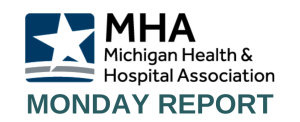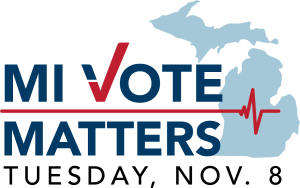
 Gov. Whitmer signed the fiscal year 2024 state budget Aug. 1, which includes $92 million in new investments directly to hospitals. It specifically provides $59 million to support increased Medicaid reimbursement rates at Level I and II trauma centers and $33 million to support an increase in Medicaid inpatient psychiatric reimbursement rates. The signed budget will go into effect Oct. 1.
Gov. Whitmer signed the fiscal year 2024 state budget Aug. 1, which includes $92 million in new investments directly to hospitals. It specifically provides $59 million to support increased Medicaid reimbursement rates at Level I and II trauma centers and $33 million to support an increase in Medicaid inpatient psychiatric reimbursement rates. The signed budget will go into effect Oct. 1.
In addition to the ongoing and targeted new investments, the agreement provides necessary resources to assist hospitals and health systems in advancing the health of individuals and communities throughout Michigan. It maintains funding for the Healthy Michigan Plan, Medicaid, graduate medical education, disproportionate share hospitals and the rural access and obstetrical stabilization pools.
The MHA is also pleased with new investments in workforce by lowering the age for Michigan Reconnect from 25 years to 21 years of age and investing $2.5 million to support recruitment and retention programs for behavioral health professionals. The budget also increases ongoing funding for the Michigan Achievement Scholarship, which provides significantly reduced tuition for many students at public universities.
Consistent with the strategic action plan of the MHA, the budget places a new emphasis on health equity and reducing disparities for maternal health care with specific, targeted new investments. Funding is included for the Michigan Alliance for Innovation on Maternal Health and $49.5 million for community health programs, healthy community zones, IT improvements and mobile health units to address racial disparities in health. Additionally, the budget further expands the Medicaid program by eliminating the five-year waiting period for pregnant and new mothers who are legally residing in Michigan.
Members with questions on the state budget may contact Adam Carlson.


 Healthcare Community Urged to Vote in Nov. 8 General Election
Healthcare Community Urged to Vote in Nov. 8 General Election MHA CEO Report — Your Vote Matters
MHA CEO Report — Your Vote Matters 
 News to Know
News to Know